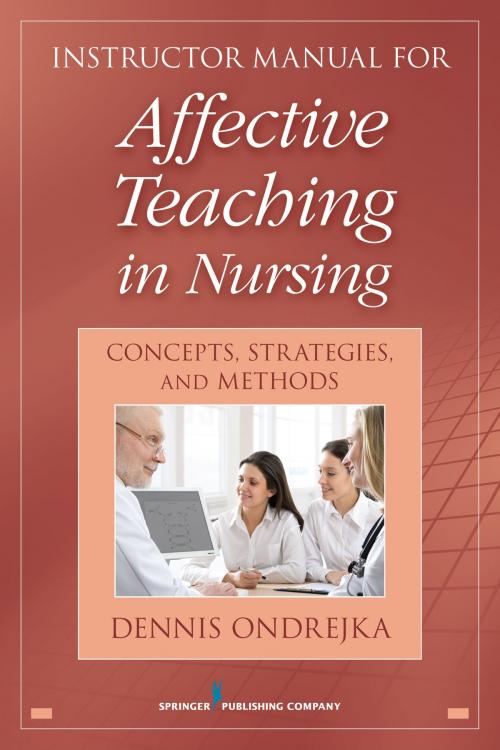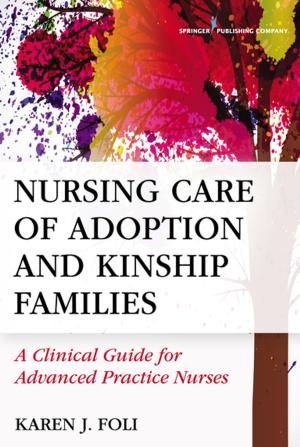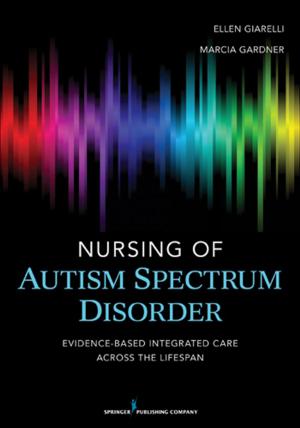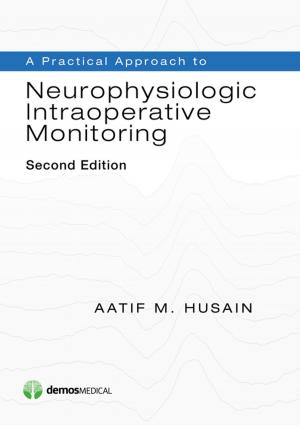Affective Teaching in Nursing
Connecting to Feelings, Values, and Inner Awareness
Nonfiction, Health & Well Being, Medical, Nursing, Issues| Author: | Dennis Ondrejka, PhD, RN, CNS | ISBN: | 9780826117939 |
| Publisher: | Springer Publishing Company | Publication: | August 7, 2013 |
| Imprint: | Springer Publishing Company | Language: | English |
| Author: | Dennis Ondrejka, PhD, RN, CNS |
| ISBN: | 9780826117939 |
| Publisher: | Springer Publishing Company |
| Publication: | August 7, 2013 |
| Imprint: | Springer Publishing Company |
| Language: | English |
Although nursing education today offers copious amounts of information geared to test preparation, it does not adequately harness the emotional intelligence of individual studentsóa quality that can greatly enrich the nursing profession. This expert resource for understanding the importance of affective teachingówhat it is and how to incorporate it into the classroomóprovides a plentiful array of affective teaching pedagogy and references.
Drawing from the emotional and social intelligence movement, the text offers both new and traditional insights into the importance of linking intellectual and emotional intelligence in knowledge acquisition. It provides helpful strategies for nurse educators to enrich their teaching with affective teaching strategies, methods, and skills in the classroom, and describes successful models for creating an affective teaching infrastructure that will endure.
Designed for use in masterís and doctoral programs in nursing and health care education, the book espouses a paradigm that is embraced by leaders in education and major institutions. It discusses the major themes of entrenched, traditional teaching methods, and contrasts them with the theory, research, and practice underlying affective teaching in nursing.
The book follows the history of affective teaching from its inception in Bloomís Taxonomy to the present day. It addresses teaching infrastructure needs, affective teaching models, tools for measuring the results of affective teaching, the use of affective teaching in distance learning and at conferences, and international perspectives. The text also identifies the risks and advantages of affective teaching, and how they have been addressed by a variety of nursing educators and encourages reflective practices that help students gain inner awareness. It will be a valuable addition to the teaching arsenal of nurse educators who wish to go beyond the objective domain of teaching to explore the enriching possibilities of subjective knowing.
Key Features:
- Provides the most authoritative information available on affective teaching in nursing
- Supports NLNís and AACNís nurse educator competencies to achieve desired outcomes in the cognitive, affective, and psychomotor areas of learning
- Clarifies affective pedagogy, how to discuss it, and what it implies for teaching success
- Addresses philosophy, taxonomy, teaching infrastructure needs, affective teaching models, and assessment tools
- Covers the use of affective pedagogy with distance learning and at conferences
Although nursing education today offers copious amounts of information geared to test preparation, it does not adequately harness the emotional intelligence of individual studentsóa quality that can greatly enrich the nursing profession. This expert resource for understanding the importance of affective teachingówhat it is and how to incorporate it into the classroomóprovides a plentiful array of affective teaching pedagogy and references.
Drawing from the emotional and social intelligence movement, the text offers both new and traditional insights into the importance of linking intellectual and emotional intelligence in knowledge acquisition. It provides helpful strategies for nurse educators to enrich their teaching with affective teaching strategies, methods, and skills in the classroom, and describes successful models for creating an affective teaching infrastructure that will endure.
Designed for use in masterís and doctoral programs in nursing and health care education, the book espouses a paradigm that is embraced by leaders in education and major institutions. It discusses the major themes of entrenched, traditional teaching methods, and contrasts them with the theory, research, and practice underlying affective teaching in nursing.
The book follows the history of affective teaching from its inception in Bloomís Taxonomy to the present day. It addresses teaching infrastructure needs, affective teaching models, tools for measuring the results of affective teaching, the use of affective teaching in distance learning and at conferences, and international perspectives. The text also identifies the risks and advantages of affective teaching, and how they have been addressed by a variety of nursing educators and encourages reflective practices that help students gain inner awareness. It will be a valuable addition to the teaching arsenal of nurse educators who wish to go beyond the objective domain of teaching to explore the enriching possibilities of subjective knowing.
Key Features:
- Provides the most authoritative information available on affective teaching in nursing
- Supports NLNís and AACNís nurse educator competencies to achieve desired outcomes in the cognitive, affective, and psychomotor areas of learning
- Clarifies affective pedagogy, how to discuss it, and what it implies for teaching success
- Addresses philosophy, taxonomy, teaching infrastructure needs, affective teaching models, and assessment tools
- Covers the use of affective pedagogy with distance learning and at conferences















